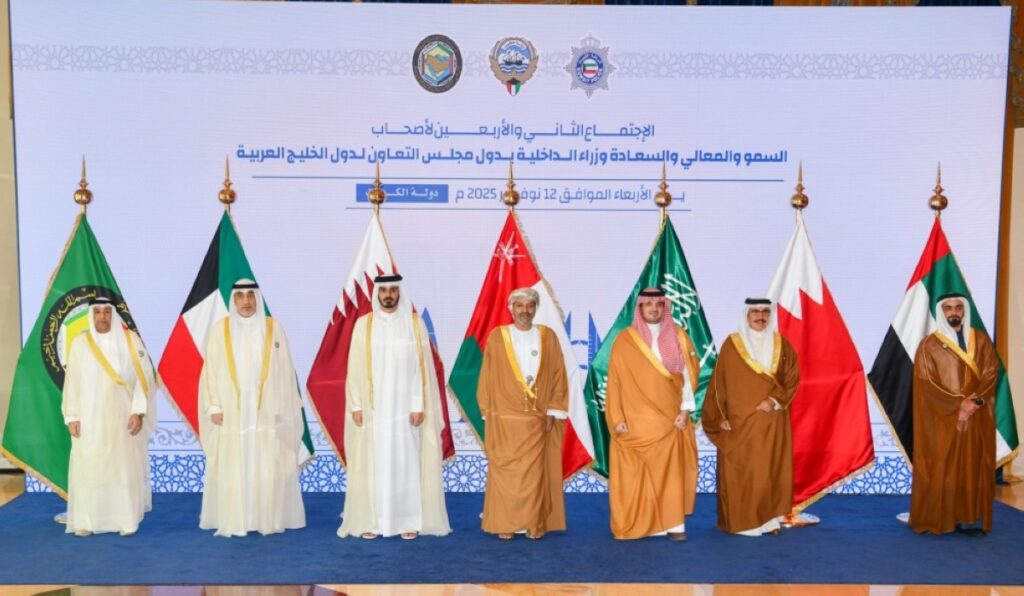KUWAIT: The Gulf Cooperation Council (GCC) has approved the first phase of a “one-stop” travel system for Gulf nationals, marking a major step toward facilitating intra-Gulf mobility and integration, GCC Secretary-General Jasem Al-Budaiwi announced on Wednesday. Speaking following the 42nd GCC Interior Ministers’ meeting held in Kuwait, Al-Budaiwi said the new system will be launched on a trial basis for air travel between the United Arab Emirates and Bahrain. If successful, it will later be expanded to all GCC member states.
He added that the meeting also produced a comprehensive “GCC Security Strategy” to combat money laundering and approved the development of a unified electronic system linking travel violations across the bloc. Preparations are also underway for the first-ever GCC Security Conference, scheduled to be held in Abu Dhabi in 2027.
The meeting, chaired by Kuwait’s First Deputy Prime Minister and Minister of Interior Sheikh Fahad Al-Yousef Saud Al-Sabah, gathered interior ministers from the six-member bloc to discuss enhancing security cooperation, combating organized and cybercrime, and strengthening coordination in the use of artificial intelligence and modern technologies.

KUWAIT: HH the Crown Prince Sheikh Sabah Al-Khaled Al-Hamad Al-Sabah receives at Bayan Palace GCC interior ministers and the GCC Secretary-General, who participated in the 42nd GCC Interior Ministers’ meeting on Nov 12, 2025. – KUNA
Earlier, HH the Crown Prince Sheikh Sabah Al-Khaled Al-Hamad Al-Sabah received at Bayan Palace the participating GCC interior ministers and the GCC Secretary-General. During the audience, he conveyed the greetings of HH the Amir Sheikh Meshal Al-Ahmad Al-Jaber Al-Sabah and wished the ministers success in their deliberations.
In his opening remarks, Sheikh Fahad stressed that GCC security and stability form an integrated system based on shared destiny and common goals. He said the meeting comes amid rapid regional and global developments that call for unified Gulf visions and field mechanisms to safeguard societies.
“Joint Gulf security efforts have long served as a shield against terrorism, extremism and drug trafficking, which threaten the present and future of Gulf societies,” he said, emphasizing the importance of field coordination, expertise exchange and unified awareness campaigns to combat drugs and organized crime.
He underlined that security today extends beyond border protection to include safeguarding awareness, stability and social well-being, noting that fostering a conscious and responsible Gulf citizen is key to sustainable security and national belonging. Sheikh Fahad reaffirmed Kuwait’s unwavering commitment to supporting all collective efforts that strengthen the Gulf security system, praising the GCC Secretariat’s role in implementing the bloc’s directives.
Al-Budaiwi said the GCC’s strong regional and international standing reflects its security and stability, attracting visitors, investors and job seekers alike. He reviewed major initiatives discussed during the meeting, including the Gulf Security Strategy for Combating Money Laundering (2026-2030), the Gulf Strategy for Combating Drugs (2025-2028) and preparations for the Gulf Strategy for Combating Cybercrime and Extremism.
The ministers also discussed enhancing joint training and organizing workshops in cooperation with the UN Office on Drugs and Crime (UNODC). Al-Budaiwi expressed deep gratitude to HH the Amir Sheikh Meshal for Kuwait’s leadership and hospitality in hosting the meeting, and to Sheikh Fahad and the ministry of interior for ensuring its success.
The Bahraini interior minister stressed that organized and cross-border crimes driven by technological advancements require equally organized and collective Gulf security efforts. Meanwhile, the UAE interior minister reaffirmed his country’s commitment to all initiatives that strengthen GCC cooperation.
The Saudi interior minister called for developing an integrated system and conducting forward-looking studies to counter emerging threats, highlighting the importance of building human capacities and raising public awareness. The Qatari interior minister affirmed that Gulf security is indivisible, reiterating his country’s commitment to enhancing cooperation and exchanging expertise and information to safeguard the region’s stability and prosperity. The session concluded with a reaffirmation of the GCC’s unified approach to maintaining security, stability, and prosperity for the peoples of the Gulf. – KUNA

